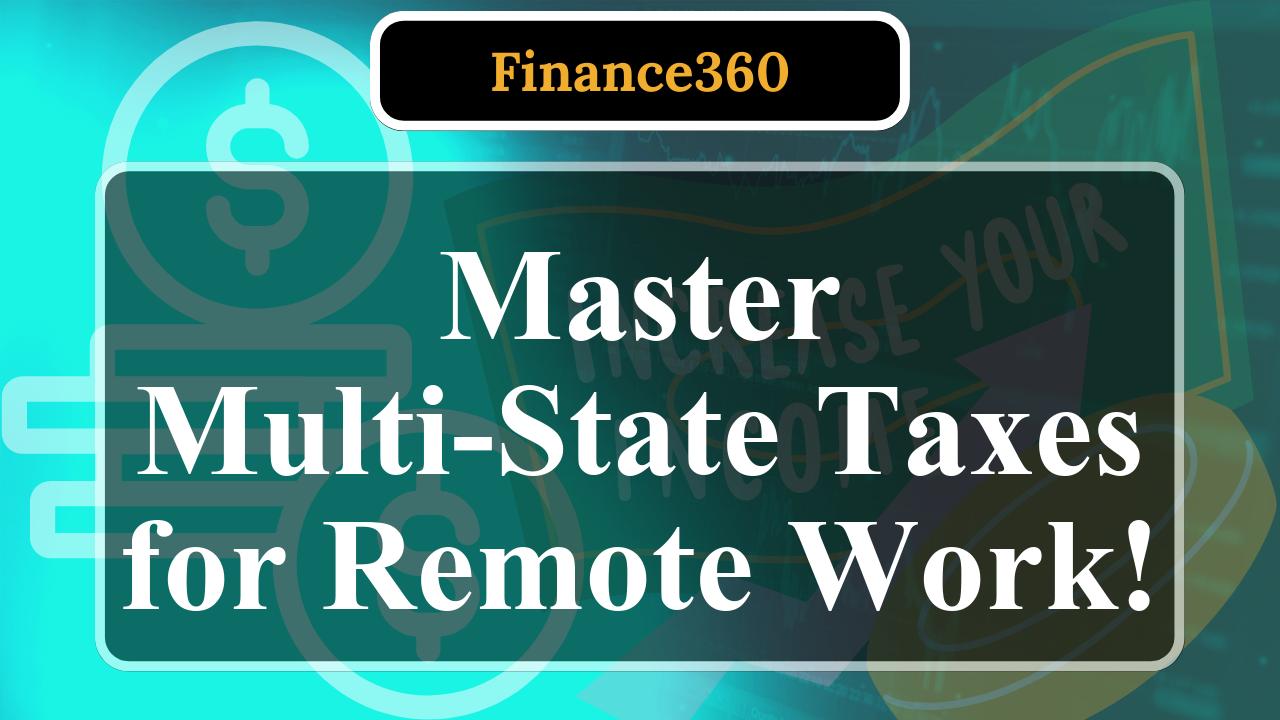“Remote work offers flexibility, but multi-state taxes can be complex. This article explains how to determine tax obligations, leverage reciprocity agreements, avoid double taxation, and ensure compliance. Learn key rules for employees and employers, including the ‘convenience of employer’ test, tax credits, and state-specific regulations to manage your tax responsibilities effectively.”
Navigating Multi-State Tax Challenges for Remote Work
Understanding Tax Residency and Obligations
Remote workers often face tax obligations in multiple states due to living in one state while working for an employer based in another. Your resident state—where you maintain a permanent home—taxes all your income, regardless of where it’s earned. However, if you work remotely in a different state from your employer’s headquarters, you may also need to file a nonresident tax return in that state. For example, if you live in Ohio but work remotely for a New York-based company, you may need to file tax returns in both states. Nine states—Alaska, Florida, Nevada, New Hampshire, South Dakota, Tennessee, Texas, Washington, and Wyoming—do not impose personal income tax, simplifying obligations for residents of these states.
Reciprocity Agreements Simplify Taxation
Some states have reciprocity agreements that allow residents to pay income tax only in their home state, even if they work in another. For instance, a Wisconsin resident working remotely for an Illinois employer would only file taxes in Wisconsin due to the reciprocity agreement between these states. Currently, 16 states and the District of Columbia have such agreements, including Maryland, Pennsylvania, and Virginia. Check with your employer to file an exemption form (e.g., Form VA-4 for Virginia) to avoid unnecessary withholding in the work state. If no reciprocity exists, you’ll likely file a resident return in your home state and a nonresident return in the work state.
The Convenience of Employer Rule
Five states—Arkansas, Delaware, Nebraska, New York, and Pennsylvania—apply a “convenience of employer” rule, which can complicate tax obligations. Under this rule, if you work remotely for your convenience (not because your employer requires it), your income may be taxed in the state where your employer is based, even if you never set foot there. For example, a California resident working remotely for a New York employer may owe New York taxes if the remote work is for personal convenience. Some states, like Connecticut and New Jersey, apply this rule only to nonresidents from states with similar rules. Always check the Department of Revenue website for your employer’s state to understand how this rule applies.
Avoiding Double Taxation
Federal law prohibits two states from taxing the same income, and most states offer credits for taxes paid to another state to prevent double taxation. For instance, if you pay taxes to your work state, your home state typically allows a credit for those taxes, reducing your tax liability. However, if the work state’s tax rate is higher, you may still owe residual taxes in your home state. Accurate income apportionment is critical—report only the income earned in each state to avoid overpayment. Keeping detailed records of where and when you worked is essential, especially for digital nomads or those splitting time between states.
Employer Withholding and Compliance
Employers are generally required to withhold taxes based on where you perform work, but this varies by state. For example, Ohio employers withhold taxes for Indiana if the employee works there remotely. If your employer withholds taxes for the wrong state, you may need to adjust your W-4 or make estimated tax payments to avoid penalties. Employers must also register with state tax authorities in every state where employees work and may face penalties for misclassifying employees as independent contractors. Using a Professional Employer Organization (PEO) or Employer of Record (EOR) can help employers stay compliant, especially for international remote workers.
Special Considerations for Freelancers
Freelancers and independent contractors face additional complexities. Unlike W-2 employees, they must pay self-employment taxes (covering Medicare and Social Security) and make quarterly estimated tax payments. However, they can deduct business expenses, such as home office costs, equipment, and software, which can reduce taxable income. Freelancers working for clients in multiple states may need to file nonresident returns in those states if income exceeds state-specific thresholds (e.g., $300 in some states or 60 days in Arizona).
State-Specific Thresholds and Temporary Work
States have varying rules for nonresident workers. New York requires a tax return after just one day of work, while Arizona imposes a 60-day threshold. If you temporarily work in another state (e.g., for a business trip), you may trigger tax obligations based on days worked or income earned. For example, Maine requires withholding after 12 days or $3,000 in earnings. Maintaining accurate records of work locations and consulting a tax professional can help navigate these rules.
Practical Tips for Remote Workers
To manage multi-state taxes effectively:
Update Your Address: Inform your employer’s HR or payroll department if you move or work from a different state to ensure correct tax withholding.
Track Work Locations: Maintain a log of days worked in each state, especially if you split time between multiple locations.
Consult a Tax Professional: State tax laws are complex and vary widely. A certified public accountant (CPA) can help you avoid errors and maximize credits.
Check for Credits and Agreements: Review reciprocity agreements and tax credit options to minimize your tax burden.
File Timely Returns: Even if no taxes are owed, filing nonresident returns in work states can ensure refunds for over-withheld taxes.
Employer Responsibilities
Employers must navigate state-specific payroll taxes, including State Unemployment Tax (SUTA) and benefits like disability insurance in states like New Jersey. Failing to withhold correctly can lead to penalties. Employers should establish clear remote work policies, register with relevant state tax authorities, and consider outsourcing payroll to services like Paychex or Rippling to streamline compliance.
Disclaimer: This article is for informational purposes only and does not constitute legal or tax advice. Consult a qualified tax professional for advice specific to your situation. Information is sourced from web resources, tax guidelines, and industry best practices.
